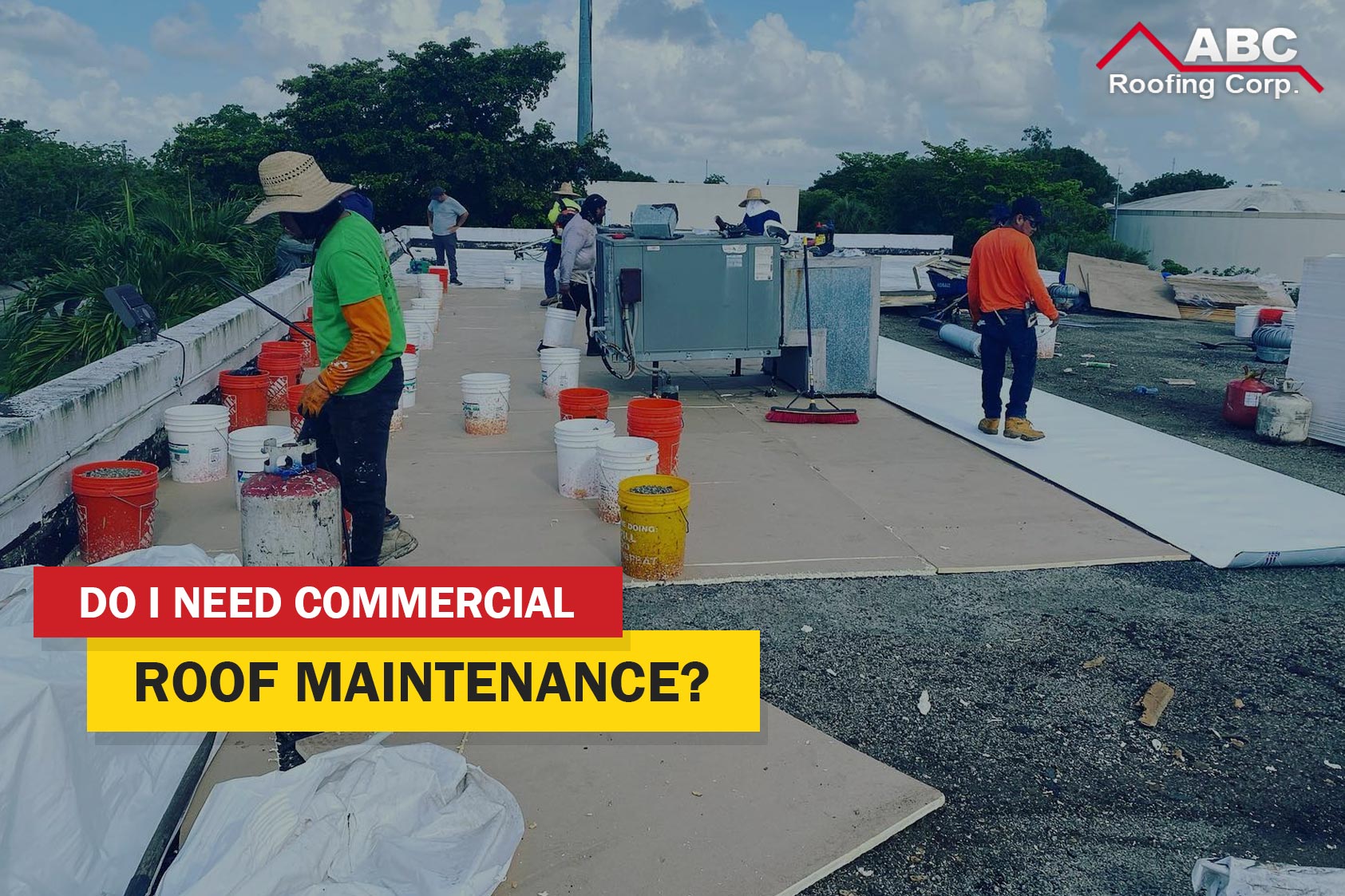
In South Florida, pools are a common component of a homeowner’s investment. But like all good things, they require a significant amount of responsibility. To enjoy your pool long-term, you will put in the maintenance hours and money to keep the water in tip-top condition. For businesses in South Florida, the same is true of your roof. As you know, your roof is one of the larger investments for your business’s property. Maintaining your roof will reap those returns. If you neglect to do commercial roof maintenance, it could become a liability. Let’s delve deeper into commercial roof inspections and their value.
Why Maintain The Roof? It’s Never Been A Problem…
Perhaps it’s never been a problem until now. The truth is that problems start small and grow incrementally. Leaving them for too long could be too late for proper roof maintenance to be of any value. You should organize a roof inspection by a qualified local roofing specialist.
What Happens In Commercial Roof Inspections?
When inspecting a commercial roof, there are more facets to the roof than in a residential setting. The roof is often flat or low-sloped and contains a lot of equipment, such as large HVAC systems. The following items form part of a regular check-up.
Roof Covering
All roofs have coverings to waterproof the structure. Based on the different inclines of the roof, the cover differs. For steep-slope roofs, tiles and metal roofs are the most common coverings. These coverings need checking for plant growth as well as general cleaning. When it comes to low-slope roofs, it’s important to look for areas where water pools up. These areas are the most likely to leak and cause problems. A trained inspector will be able to ascertain if structural remediation is required. In all roof systems, screws and rubber flanges should be checked for looseness, replaced and/or re-sealed where necessary. Drains need to be cleared. In the case of a coated roof, the inspector will also look for signs of wear which leads to rusting and flaking of the roof sheets.
Roof Flashing
All flashings must remain clear to avoid corrosion. Commercial roof maintenance requires that the flashing is secured and fastened to the building. Flashing that is loose can let water in and cause leaks. Falling flashing is also dangerous to pedestrians and the property below and should be secured.
Commercial Roof Drainage Systems
Most commercial roofs have drains on them because the roofs are often flat. Over time these drains become clogged with plant growth, as well as other kinds of litter that are blown onto the roof. If the drain is blocked, water will dam up and cause leaks and corrosion. Any gutters should also be anchored securely to the wall.
Roof Mounted Equipment
A lot of roof equipment consists of the HVAC System and includes telecommunications equipment and solar panels. As all these machines work with electricity, it’s important to ensure that the roof is clear of materials that could pose a risk to their operation. Fire risk is also a concern if there is too much uncleared dry debris and plant matter. The roof maintenance team will check for rot and corrosion on the machine curbs and ensure that any build-up is identified and removed.
Roof Penetrations
Skylights and roof hatches are important checkpoints for commercial roof maintenance. Since both of these structures sit proud of the roof surface, joins need to be sealed to stop water leaks. Roof hatches also need to be kept in working order as they provide access to the roof for workers and technicians. Again, check edges for corrosion and cracks.
South Florida Commercial Roof Maintenance Professionals
You should never attempt to perform roof maintenance yourself, it’s dangerous and you could seriously hurt yourself. The technicians at ABC Roofing have all the training and qualifications to keep your commercial roof in good working order. Give us a call today at 954-344-4622 to book your inspection.
